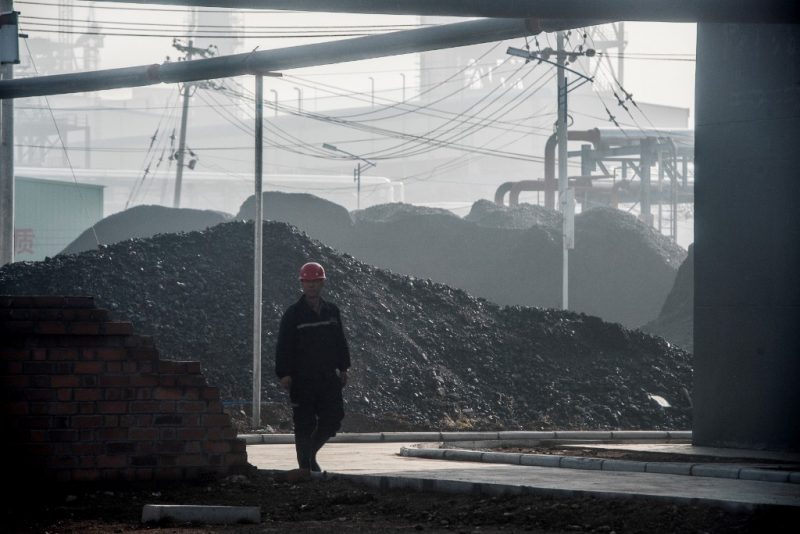(ATF) China’s state-owned industrial powerhouse Yongcheng Coal & Electricity Holdings Group and two affiliates have sold shareholdings in a high-performing subsidiary for 3 billion yuan (US$459.3 million) to a local expressway operator after Yongcheng defaulted on several billion yuan of bonds over the last six weeks.
In the meantime, the chairman of Yongcheng’s debt-laden parent company, Henan Energy and Chemical Industry Group, was removed from office. Yongcheng, which was established in 2007, is 96% owned by Henan Energy.
Yongcheng, Jiaomei and Hemei agreed to sell 140 million, 80 million and 398 million shares respectively – some 9.54% of the ownership in Yongmei Group Ltd – to state-owned Henan Expressway Development Corporation Ltd, Henan Energy said in a statement on Wednesday on the website of the National Interbank Funding Centre.
The payment has already been made by Henan Expressway, and Henan Energy will remain Yongmei Group Ltd’s actual controller after the transaction, the statement said.
Yongcheng defaulted on a 1 billion yuan ($151.8 million) bond on November 10, just weeks after it sold fresh debt. The state-owned enterprise had a AAA rating, so the sudden default of its bonds spurred a tidal wave of panic and a selloff in China’s corporate debt market.
The company – once rated as the country’s most profitable coal miner – subsequently defaulted on three more 1 billion yuan bonds, which matured on November 22, November 23, and December 15, respectively.
Repayment deals with creditors, $3.1-bn debts
It has reached agreements with creditors to first repay 50% of the principal on all of these issues on which it defaulted, with the remainder extended for nine months. For the latest default, it also agreed to pay the interest together with 50% of the principal, another statement by Henan Energy on Wednesday showed.
Yongcheng faces maturities on two more 1 billion yuan commercial paper issues on December 18 and December 25, and Henan Energy faces maturity of one commercial paper on January 6. Both of them have more than 20 billion yuan ($3.1 billion) of outstanding bond debt.
In the meantime, Henan Energy announced on Monday that Liang Tieshan, a retired former chairman of rival Henan Pingmei Shenma Group, will replace Liu Yinzhi as its chairman. Liu has stepped down because of “work-related reasons”, the statement said.
An article on the group’s WeChat channel shows that Li Tao, director of the State-owned Assets Supervision and Administration Commission of Henan province, has taken over Liu’s other role as secretary of the Party committee, and is directing the group to settle its debt and regain vitality.
“Yongcheng’s default has to do with its unreasonable debt structure, insufficient liquidity and many related-party transactions, and is ultimately caused by the company’s poor management – its coal chemical business has been incurring continuous loss,” Chen Chen, an analyst from Zhongtai Securities, said.
Zhonghai Securities’s research found that most of Yongcheng’s coal chemical projects were set up in a period with high oil prices (2008-2010) and the investments were massive. Since 2019, with the decline of international crude oil price, the prices of chemical products have fallen sharply.
Chemical department ‘insolvent’
“The main subsidiaries in Yongcheng’s chemical segment have suffered serious losses and have reached the level of insolvency,” Chen said.
“Yongcheng’s default would be a lesson for for those in industries with high capital expenditure. It is advisable to make a long-term assessment of the industry’s supply and demand trend when kicking off a new project. At the same time, they should constantly upgrade their techniques and equipment to improve cost efficiency so that they have enough capital for the rainy day,” he said.
Yongcheng was among several other top-rated state-owned enterprises (SOEs), such as Huachen Automotive Group and Tsinghua Unigroup, whose recent default caused severe turmoil in China’s bond market.
These defaults have also torpedoed investor assumptions that authorities will always bail out SOEs.
Industry professionals told ATF that allowing distressed companies to fail and removing the implicit government guarantees will improve capital allocation efficiency, impose market discipline, and reduce moral hazard, and these defaults will also compel the market to price in financial risks more accurately.
Chinese regulators have launched probes into Yongcheng, its auditor and some of its underwriters.
Haitong Securities was suspected of assisting Yongcheng Coal to illegally issue bonds and manipulate the market, and underwriters of the Yongcheng Coal default – Industrial Bank, China Everbright Bangkok and Zhongyuan Bank – were suspected of violating “self-financing” rules.
























